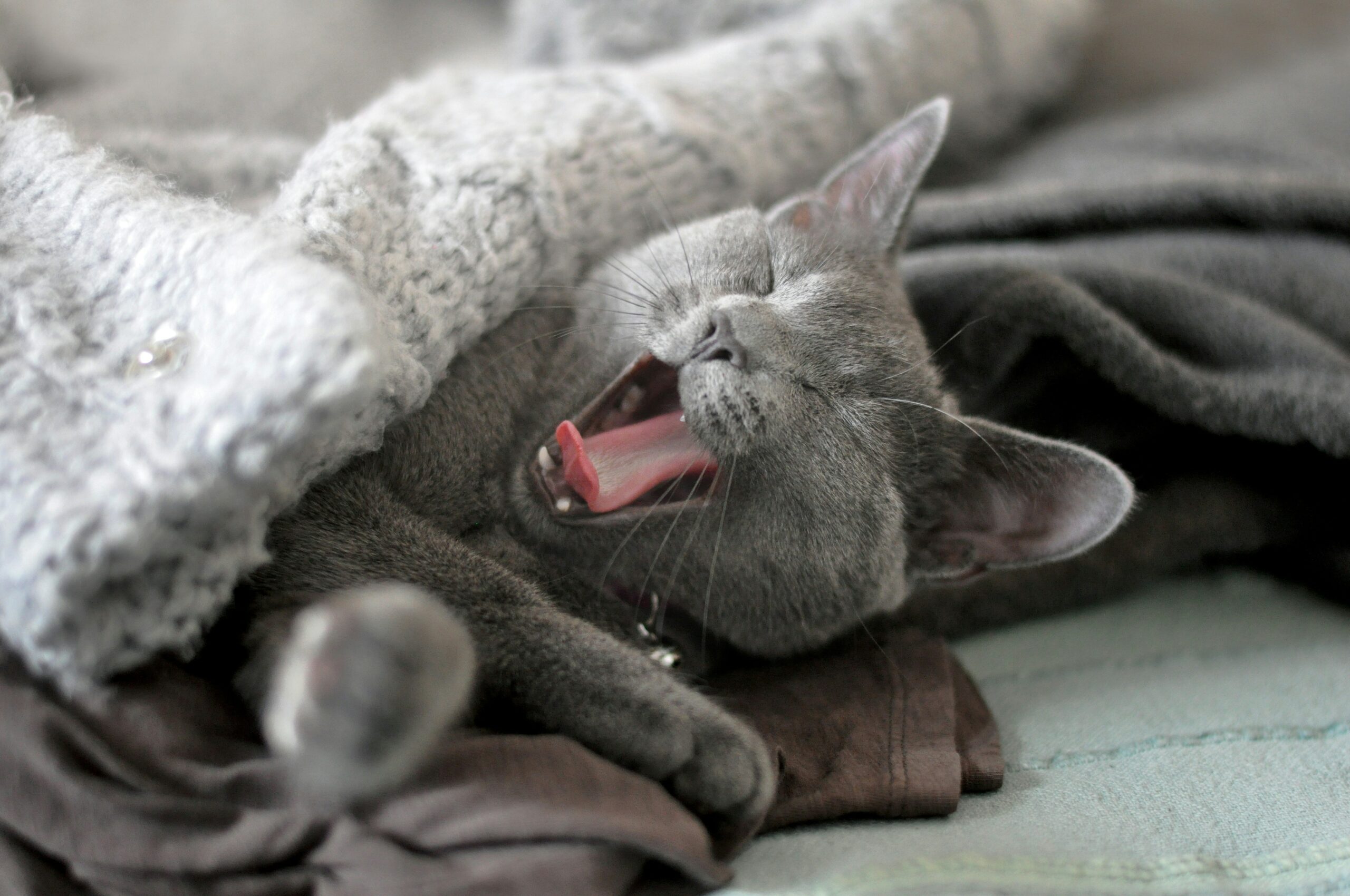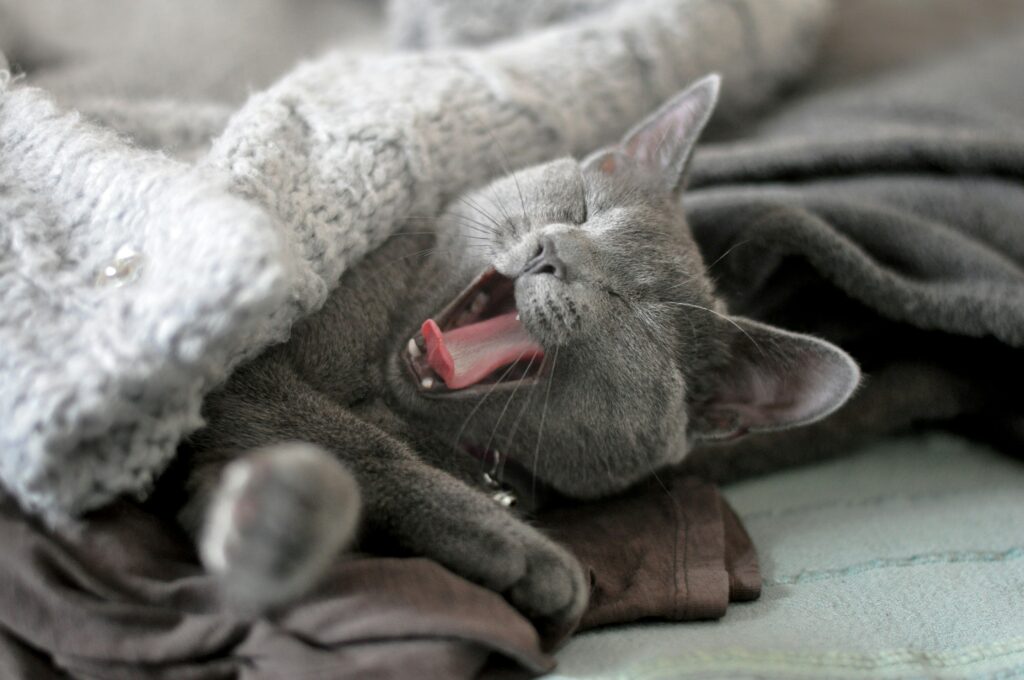
Perimenopause Fatigue – How to Boost Your Energy in Perimenopause
If you’re perimenopausal and have recently felt exhaustion hit you like a school bus, know that it’s not laziness. It’s perimenopause fatigue.
The severity of perimenopause fatigue can range from person to person. For some, it’s a light splattering of tiredness and a few yawns. For others, it’s a case of not being able to string a sentence together because of the sheer exhaustion hanging around their necks.
So, let’s take a deeper look into perimenopause fatigue. Why does it happen? When does it happen? And most importantly, what can you do to boost your energy levels and shed the exhaustion?
Let’s dive in.
Last Updated:
What is perimenopause?
First, let’s revisit the basics: what exactly is perimenopause?
When women start to experience symptoms like hot flashes, night sweats, erratic periods and weight gain, many label it “menopause.”
It’s understandable why they would do so, with menopause getting more media exposure in film and tv, but they are actually in perimenopause.
Perimenopause is when you are experiencing the typical symptoms of menopause and your periods aren’t as regular as they once were. This varies in terms of the amount of bleeding, the frequency of your periods and how long they last. However, the most important distinction between perimenopause and menopause is that you are still having some vaginal bleeding alongside your other “menopause” symptoms.
Perimenopause vs menopause
The difference between perimenopause and menopause is actually fairly straightforward.
You are officially menopausal once you haven’t had a period or any vaginal spotting for 12 consecutive months. Realistically, menopause is only one day. After this day, you are in the post-menopause phase and remain there for the rest of your life.
Perimenopause, on the other hand, is the transitional period between pre-menopause and menopause itself. It comes with symptoms such as hot flashes, mood swings, weight gain and fatigue, but you’re still having some kind of period, even if it’s irregular.
If, for example, you have tracked that you have not had any vaginal bleeding for 11 months but you start spotting, your tracker would need to start again from the moment you stop spotting.
Is perimenopause fatigue a real thing?
Yes, perimenopause fatigue is absolutely a real thing! In fact, fatigue is one of the most common perimenopause symptoms. It’s important to remember the distinction between the term “tiredness” and “fatigue.”
Perimenopause fatigue is not the same as general tiredness and you should never feel ashamed of the exhaustion. The severity of perimenopause fatigue varies from person to person, just like any other symptom.

Causes of perimenopause fatigue
If you’re perimenopausal, you may have been asking yourself “why am I so tired?”. There are a few potential causes contributing to your perimenopause fatigue, such as:
Hormonal changes can cause fatigue
As you enter perimenopause, your hormones start to unbalance the tranquility your body has functioned on before. Oestrogen and progesterone will fluctuate, which is the most common trigger for perimenopause symptoms. This includes sleep disruption and insomnia.
Oestrogen is super important when it comes to the metabolism of neurotransmitters, which are responsible for maintaining and regulating your brain’s sleep-wake cycles. As your oestrogen levels dip, your sleep cycle is impacted which causes you to wake up sporadically through the night. Poor sleep quality and lack of sleep altogether? A one-way ticket to perimenopause fatigue.
Hot flashes and night sweats cause poor sleep quality
Did you know that a staggering 56% of perimenopausal women report struggling with insomnia? This insomnia is made worse with stagnated sleep, often caused in perimenopause by hot flashes and nigh sweats.
Again, you can thank your changing oestrogen levels for this one. As oestrogen levels decrease, your body’s temperature control (your hypothalamus) becomes far more sensitive, which is where your hot flashes and night sweats come from. Your body becomes extra sensitive to anything that it believes makes you too warm, releasing a signal for you to sweat it out to cool you down.
Extra stress hormones means extra stress and less sleep
Cortisol – the stress hormone – plays a huge role in your stress levels. As you transition into perimenopause, cortisol levels increase. Of course, every day stressors won’t help, and perimenopause is often the phase of life where many changes are happening at once.
Cortisol helps to regulate your body clock and circadian rhythms. When your cortisol levels increase, you’re more likely to feel on edge, panicked or stressed. When this happens, your heart rate picks up and your temperature does too, which can sometimes trigger hot flashes or night sweats.
Combine all of this and it’s no wonder that we’re not sleeping like a baby!
When fatigue isn’t caused by perimenopause, you should see a doctor
It’s really important to remember that not all fatigue is perimenopause fatigue. That’s why, if you’re experiencing fatigue – whether you’re perimenopausal or not – you should speak with a doctor. If it is not your perimenopause causing it, fatigue may be a symptom of a serious underlying condition. It’s always better to be safe than sorry.
Fatigue is often linked to mental health conditions, such as anxiety and depression (both of which are common in perimenopause and menopause) and ADHD. On top of that, fatigue can also be a side effect of infection, heart and lung conditions and autoimmune issues.
You should speak with your doctor whenever you experience fatigue, though it’s even more crucial to do so if you are experiencing any of the following symptoms alongside exhaustion:
- Pain in your chest, upper back and/or arm
- An irregular and rapid heartbeat that feels like it’s pounding
- Shortness of breath or struggling to breathe properly
- Feeling weak and tired in your muscles (specifically in your legs and arms)
- Having darker thoughts about harming yourself (or others)
- Persistent tummy bloating, pain, and sickness
- Skin rashes
- Changes to your eyesight and vision
- Persistent headaches and migraines
How long does perimenopause fatigue last?
The good news is – just like most menopause and perimenopause symptoms – perimenopause fatigue won’t last forever and will likely go away on its own in time. But for many, this fatigue is debilitating and impacting their everyday lives, so waiting for it to go away itself over a few years is simply not an option.
You may find that your perimenopause fatigue will peak during the last few years before your last period and, after reaching menopause, it’s said to take about a year to balance out to the “new normal.”
What to do about perimenopause fatigue
We now know what perimenopause fatigue is, why it happens and how long it lasts. So, let’s move onto the most important part of today’s post: what can you do about perimenopause fatigue?
1. Eat to boost your energy levels and rid perimenopause exhaustion
You will be amazed at how your energy levels can change depending on what you eat. This goes both ways, though. Eat the right foods, you’ll feel refreshed, awake and focused. Eat the wrong foods and you will worsen your existing fatigue.
Add the following foods to your weekly shop and keep a food diary to track how they impacted your energy levels on a scale of 1 (worsened your perimenopause fatigue) to 10 (you feel like a whole new woman.)
Swap our highly processed foods for unprocessed, whole foods
Unprocessed foods will help your energy levels remain more consistent for a longer period.
When you eat processed foods, you’re also digesting preservatives, trans fat, added sugars, additives and so much salt. If this becomes too frequent, your body will not be gaining the nutrients it needs, struggling to cope without the necessary vitamins and minerals, leaving you feeling lethargic and low in mood.
Ever wondered why a happy meal from you-know-where always leaves you needing a nap and feeling a little bit off? It’s the lack of nutrients.
On top of this, ultra-processed foods can cause inflammation and bloating, which is already an issue in perimenopause. Over time, this can slow down your body as a whole and worsen existing fatigue.
With that in mind, it’s time to make the switch and swap packaged and canned foods, sweets and pre-cooked meats for the better alternative: unprocessed and whole foods. These include foods like:
- Fresh fruits and vegetables
- Whole grains
- Legumes and beans
- Dairy products that are low fat
- Lean proteins
- Nuts and seeds
Get your daily dose of fruit and vegetables
It’s not just something we tell our kids to make them eat healthier. Eating fruits and vegetables help us fight exhaustion, which is even more necessary when you’re struggling with perimenopause fatigue.
Fruits and veggies are packed with minerals, vitamins and nutrients that you need for general wellbeing and brain function. If you’re suffering with menopause brain fog, up your intake of fruits and vegetables.
The NHS recommend eating a minimum of 5 portions (400g) of fruits and vegetables every day.
While you’ll likely hear “don’t eat frozen, eat fresh,” it’s not always true when it comes to fruits and vegetables. Frozen alternatives in this food group are also highly nutritious, they last longer and they’re more affordable, so don’t feel that you can’t shop in the freezer aisle for your 5-a-day.

Choose lean proteins to combat perimenopause fatigue
Lean protein is far better for you, especially if you’re experiencing exhaustion. It tackles fatigue by:
- Slowing your digestion
- Helping you feel fuller for longer (which is also great for weight control)
- Reducing bloating and inflammation
- Aiding with nourishment and maintaining muscle mass
- Preventing spikes and crashes in glucose levels
Animal proteins that are lean include foods like chicken (preferably chicken breast), eggs, turkey and fatty fish.
If you’re plant-based, you can still consume lean proteins in the form of legumes, soy products and tofu.
Eat whole grain foods and complex carbs rather than refined carbs
Carbohydrates are a key food group. Diets have encouraged people to cut out carbs, but this is not nutritionally advised at all. After all, carbs are the primary source of energy inside our bodies, so cutting them out entirely is a direct path to the tired side.
Instead, it’s about choosing the right ones. Opting for whole grain foods and complex carbs means your body will gain the fibre needed to create energy that is consistent and long-lasting.
Refined carbohydrates, though, are digested by the body very quickly, leading to energy crashes. It’s no wonder that refined carbs make your perimenopause fatigue more drastic.
Complex carbs are inside fruits, vegetables and whole grains, so opt for that route rather than white bread and pastas, cakes, sweets and carbonated drinks.
Nuts will help you feel more awake
Yes, nuts truly do fight fatigue! Not only are nuts great for restoring energy levels, they are also filling, making them an excellent addition to your diet if you are trying to lose weight. Just make sure you opt for the raw ones with no added salt.
The following nuts are best recommended if you’re tackling perimenopause fatigue:
- Walnuts
- Almonds
- Cashew nuts
- Hazelnuts
- Brazil nuts
- Pecans
2. Exercise routinely for better energy levels (even when you don’t want to)
If you’re struggling with perimenopause fatigue, it’s completely understandable if you don’t want to exercise. That said, gentle exercise will truly boost your energy levels and help with exhaustion.
Just make sure you don’t exercise directly before bed as this can make it difficult for you to fall asleep.
Consider yoga, as this is a gentle form of exercise and can also become a method to destress. Seeing as cortisol and added stress is such a core factor in why perimenopause fatigue happens, this method can help reduce the excess hormones and encourage you to get a full 40 winks.
3. Practice good sleep hygiene and improve your sleep quality
Perimenopause fatigue can be lessened with good sleep hygiene. Good sleep hygiene includes:
- Having a regular sleep schedule that you stick to
- Avoiding caffeine as much as possible
- Cutting out alcohol as much as possible
- Avoiding electronic devices and screens for an hour before bed
- Not eating for an hour before bed
4. Manage your stress levels to avoid burnout
Heightened stress levels are all too common in perimenopause, in part due to the increased cortisol levels inside the body. On top of this, there are many personal factors and changes that could be feeding into a more anxious, stressed out state of mind.
Cortisol is a menace when it comes to sleep quality, so learning how to manage your stress will be revolutionary.
Everyone is different, so the stress-reducing strategies that work for some may not work for others. It’s all about experimenting until you discover what makes you feel less stressed. That said, to help you with where to begin, here are a few strategies you could try:
- Breathing exercises
- Guided meditation
- Journalling
- Practicing gratitude
- Bubble baths
- Reading
- Yoga
- Going on a walk
5. Talk to the people you trust about how you’re feeling
While the taboo surrounding menopause and perimenopause is starting to evaporate, it’s not fully gone yet. It can still feel embarrassing to talk about this period of your life, but it shouldn’t.
If you’re suffering from perimenopause fatigue, there’s a good change that you are struggling with emotional health and mood swings, too.
Not only will talking to the people you trust most allow them to support you, it will also explain why your mood swings have been present in the first place.
Whether you’re talking to your spouse or partner, children, friends or a therapist, keep them in the loop so they can support you through it.
What makes perimenopause fatigue worse?
You now have 5 strategies to improve perimenopause fatigue. However, there are certain things that can actually make it worse. With that in mind, it’s important to avoid triggers by:
1. Avoid eating spicy foods that trigger hot flashes and night sweats
If you have hot flashes and night sweats, you’re going to want to avoid spicy food as it tends to trigger a flash. Instead, you should focus on cooling foods. But why should you avoid spicy foods in perimenopause?
Inside chilli peppers is something called capsaicin, which is needed to make chillies spicy. Capsaicin can trigger a release of histamine, which widens the blood vessels. As the blood flow increases to the skin, a hot flash can be triggered.
Capsaicin can also increase your heart rate and blood pressure, which also can trigger a hot flash.
If you’re struggling with hot flashes and night sweats, it’s better to simply cut out spicy foods.
2. Quit (or cut back on) caffeine and carbonated drinks.
We all know that caffeine can cause sleep disruption. When you’re low on energy thanks to perimenopause fatigue, it can be all too tempting to grab a coffee to help you wake up. The problem is, though, that this caffeinated drink can trigger other symptoms.
Caffeine kick starts the rate of your nervous system, boosts alertness and hinders your vitamins and minerals intake. It’s been proven time and time again to hinder sleep quality, causing insomnia which is one of the most common perimenopause symptoms.
Instead of coffee, consider green tea. Not only will you be improving your sleep, but green tea is great for bone density, which is also impacted during perimenopause.
3. Reduce your alcohol intake – or cut it out altogether
Alcohol is a tricky thing. It can be challenging to cut it out altogether when it’s such a social event. However, if you’re struggling with perimenopause fatigue (among other perimenopause symptoms), it’s truly worth cutting it out. If that’s not possible, you’ll feel a difference if you cut back.
Women have a rougher time metabolising alcohol in comparison to men. Alcohol causes your body temperature to increase and your blood vessels to dilate. This, as a result, triggers hot flashes and night sweats.
Not to mention, alcohol has been monitored in raising cortisol levels in the body, worsening stress and adding to the already pre-added levels because of perimenopause. Alcohol will disrupt sleep, be detrimental to mental health and worsen conditions such as depression and anxiety, make your mood swings more extreme and worsen dehydration.
Finally, if weight control is important to you, alcohol is not your friend. You are far more likely to put on weight if you are consuming alcohol regularly.
Quitting alcohol will also nourish your skin and hair. So, it’s honestly worth taking the step to quit (or cut down, at the least) the booze.
4. Do not skip meals – especially breakfast
Skipping meals is never a good idea, especially breakfast. Even if you’re rushing around and you’re late for work, you should avoid skipping breakfast.
There are many people who just can’t “face” breakfast. That’s completely fine. Opt for a smoothie (my banana berry smoothie, for example) or a protein powder drink.
Otherwise, if you’re a breakfast lover like I am, consider getting stuck into my vegetarian breakfast frittata. It’s delicious and super nutritious!
To avoid a drop in blood sugar levels and consistent energy, make sure you’re eating three spaced-out meals a day.

5. Avoid a super carb-heavy lunch
Carbohydrates aren’t the easiest thing to digest and they take a significant amount of energy to do so. So, if you’re having a carb-heavy lunch, your body is using the energy it has stored to help digest it.
Pasta, rice, or white bread, for example, will take a heap of energy to digest, basically levelling out the energy you gained from your lunch in the first place. By the late afternoon, you’ll be flagging.
6. If you nap, don’t exceed 10 minutes
When you’re suffering with perimenopause fatigue, it can be so tempting to shut your curtains at 1PM, grab a fluffy blanket and go to sleep for a few hours. The problem is, of course, that having a long sleep means you’ll end up in a 90-minute sleep cycle. The result is feeling groggy when you wake up and finding it tricky to go to sleep in the evening.
Some people find napping does truly help while, for others, it makes them feel worse. If a nap does help you, just make sure it’s no more than 10 minutes – a true power nap.
When to see a doctor about perimenopause fatigue
Remember that, just because something is happening when you’re in perimenopause, it doesn’t always mean it’s because of perimenopause. The same counts for perimenopause fatigue.
It can be easy to dismiss symptoms such as exhaustion as “just part of perimenopause and menopause,” but sometimes they indicate underlying conditions that need medical attention.
Whether you’re pre-menopausal, perimenopausal, menopausal or post-menopausal, if you are struggling with fatigue, it is always recommended that you speak with your doctor.
The same goes for all menopause symptoms, as it’s better to be safe than sorry 100% of the time.
Perimenopause fatigue – in a nutshell
Perimenopause fatigue is no joke. For some women, this exhaustion can be debilitating while for others it’s mild. No two bodies are the same, and nobody’s experience of perimenopause is identical.
Often, perimenopause fatigue is caused by fluctuating hormones – specifically the lack of balance between oestrogen and testosterone – and the hot flashes and night sweats this triggers. On top of this, the extra cortisol produced can cause panic, stress and anxiety, making it difficult to get to sleep.
The good news is that there are things you can do to combat perimenopause fatigue. Eating the right foods and avoiding the ones that make exhaustion worse is a fantastic place to start. Building upon this will be routine exercise, practicing good sleep hygiene, managing stress levels and opening up to someone you trust.
All these strategies take a little bit of time to take effect. But be consistent, track your progress and just remember, when it all gets a bit too much, that this will pass. You are not alone and your feelings are 100% valid. Just like a toddler can’t handle the day without sleep, you are entitled to cry and rage too! (Maybe avoid biting, though. It’ll hinder our reputation in the perimenopause group…)
Leave a Reply
- free ebook alert -
WHAT TO EXPECT WHEN YOU’RE
going through the menopause
Demystify your understanding of what’s happening to you. Arm yourself with solid, game-changing information to support you through this challenging phase of your life.
grab your copy now →
WHAT TO EXPECT WHEN YOU’RE
going through the menopause
This blog does an excellent job of explaining why perimenopause fatigue is more than just “being tired” and how hormonal changes drive it. Understanding these causes can help women feel less alone and more proactive about managing their energy. Nutrition can also play a role this article on the glycaemic index explores how food choices may support steadier energy levels: https://www.shemed.co.uk/blog/understanding-the-glycaemic-index-gi-for-better-food-choices
.